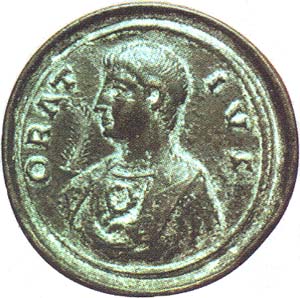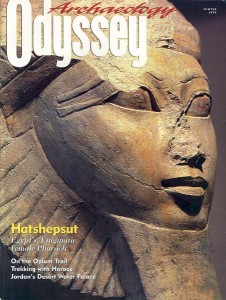Past Perfect: From Rome To Brindisi
The poet Horace steps across Italy—a trip that turns into a series of comic misadventures.

In the spring of 37 B.C., the Roman poet Horace set off down the Appian Way, the grand, ancient highway beginning in Rome and stretching some 350 miles to the southeastern coast of Italy. His destination: the port city of Brundisium (modern Brindisi), a popular point of embarkation for Romans heading to Greece. Along the way, Horace met up with his patron, Maecenas (who had been summoned to Athens to settle a prickly political dispute between Mark Antony and Octavian), and with other luminaries of Maecenas’s literary circle: Virgil, Plotius Tucca and Varius—“surely the finest [men] the world has to offer,” wrote Horace. For 17 days Horace and his companions negotiated the perils of travel in the ancient world: rainy days, sleepless nights, questionable food, poor accommodations. Horace suffered from an upset stomach and inflamed eyes, not to mention the trickery of a local girl, who had promised the poet a midnight rendezvous. Horace recounts these misfortunes in one of his Satires, the fifth poem of Book I. Though the Satires contain some of the formal rhetoric found in other Augustan poetry, their style primarily mimics the breezy candor of casual conversation. The hexameters of Satire I.5 seem to spring not from the pen of an epic poet, but from the jaw of a spirited raconteur—one who enjoyed nothing more than regaling his companions with his own stories and being entranced by theirs. “As long as I’m in my right mind,” the poet declares, “I’ll never prefer/Anything in the world to a delightful friend.”—Ed.
Already a library member? Log in here.
Institution user? Log in with your IP address.

